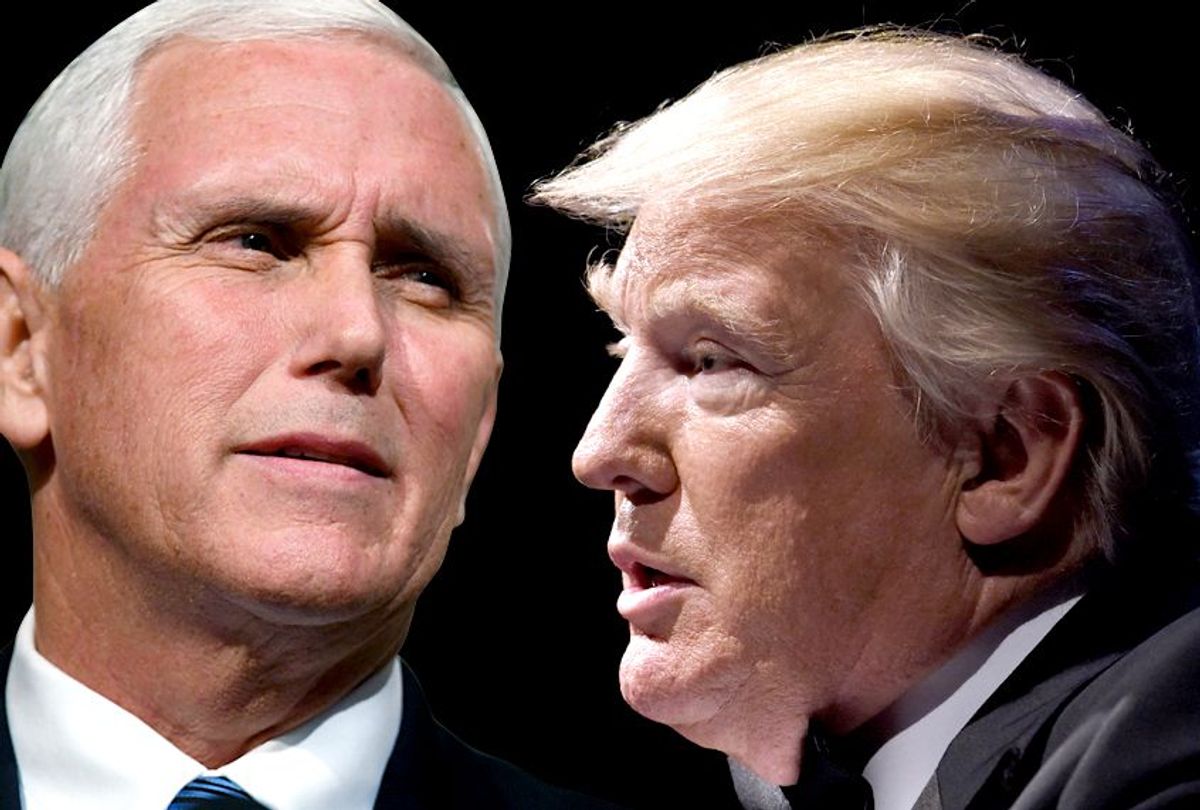President Donald Trump’s haphazard foreign policy is driven by a lot of factors. His rollbacks of free trade, for example, are motivated by his pathological obsession with America being “ripped off,” and his decision to withdraw the U.S. from the Paris climate agreement was motivated by his desire to erase everything related to former President Barack Obama.
One of his more conventional, but no less disturbing, influences could be that of right-wing evangelism.
Trump’s close relationship with evangelical politicians and voters (or more specifically, white ones), is well-known. Vice President Mike Pence is a well-known fundamentalist culture warrior who tried to make it legal to refuse service to LGBTQ couples and vowed to consign abortion rights to “the ash heap of history.” Other senior members of his administration have hardline views about religion, like Education Secretary Betsy DeVos, who has said she wants to use America’s schools to build “God’s Kingdom.”
One of the less-noticed influencers is Secretary of State Mike Pompeo, an evangelical Presbyterian who once defined his view of the world as “a never-ending struggle … until the rapture” in a speech at a Wichita megachurch. As America’s top diplomat, he more than anyone else brings these views into the foreign policy sphere — and as an analysisby The Guardian shows, that has profound consequences:
For many US evangelical Christians, one of the key preconditions for [the rapture] is the gathering of the world’s Jews in a greater Israel between the Mediterranean and the Jordan River. It is a belief, known as premillenial dispensationalism or Christian Zionism – and it has very real potential consequences for
US foreign policy.It directly colours views on the Israeli-Palestinian conflict, and indirectly, attitudes towards Iran, broader Middle East geopolitics and the primacy of protecting Christian minorities. In his Cairo visit, Pompeo heaped praise on Abdel Fattah al-Sisi, for building the new cathedral, but made no reference to the 60,000 political prisoners the regime is thought to be holding, or its routine use of torture.
The Trump administration has instituted a number of sweeping policy changes in these exact areas, from moving the U.S. embassy in Israel to Jerusalem and going back on the Iran nuclear deal.
A political worldview that is based on a belief in the near-term destruction of the world and the salvation of a chosen few poses obvious dangers. It can, for instance, make certain people’s human rights seem less legitimate.
It is important for the American people to understand the ideology underpinning our current foreign policy — and to have a serious discussion about whether everyone is represented in it.




Shares